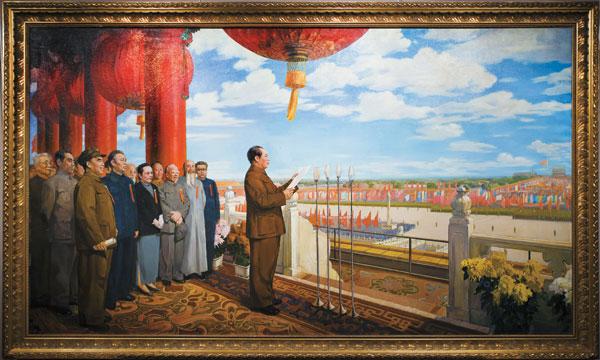In late June, British viewers tuned in to a provocative new mini-series, Douglas is Cancelled, about a distinguished television news reader who faces a social media backlash after allegedly telling a sexist joke at a private function.
A month later, life imitated art when the British Broadcasting Corporation was faced with a far more serious scandal.After earlier being accused of an inappropriate relationship with younger man, the BBC’s preeminent newsreader, Huw Edwards, pleaded guilty in court to possession of child pornography.
The response of the BBC was to distance itself from the disgraced news reader as quickly as possible. It has already started to erase his voice and image from its extensive archive, and is demanding that Edwards pay back the £200,000 salary he continued to be paid after he was first arrested.
The BBC is following a well-thumbed playbook, used when its biggest star of the 1970s and 80s, Jimmy Saville, was finally exposed a serial child abuser. But while expunging Saville from the record was relatively straightforward, a BBC spokesperson admitted that erasing Edwards would be tricky since he had been a central figure in the broadcaster’s coverage of major historical events, such as the funeral of Queen Elizabeth II, and all those broadcasts could not simply be put in the bin.
For many years, Edwards was the face of BBC television news, providing all the gravitas, relatability and reliability the corporation required of its figurehead presenter. Nevertheless, the corporation now seems determined to remove as much of the evidence of his existence as possible.
In the past, it was the communist parties of the former Soviet Union and the People’s Republic of China who were best known for airbrushing unwanted or embarrassing figures from their historical record; now, apparently, that mantle has been passed to the BBC.

The famous painting by Dong Xiwen of the founding of the People’s Republic of China that had two founding fathers removed at different times before they were restored in the late 1970s
Why is the corporation doing this? It obviously cannot deny the fact that Edwards, like Saville before him, was one of its biggest and best-paid stars. Does BBC management think that by airbrushing him from its own record, it can remove the stain on its increasingly tainted reputation?
By burying its head in the sand, and failing to examine the corporate culture that created and sustained these powerful, predatory men in the first place, the most likely consequence for the BBC is that yet another high-profile star will cause more scandal and embarrassment at some point in the future.
By Cancelling Huw, the BBC is just protecting its brand. It is what film and theatre producers do when one of their stars is accused of misconduct, it is what advertisers do when their “brand ambassadors” are compromised. In fact, any institution will put its reputation first when the social media lynch mobs start to gather.
With very few exceptions, cancelling someone or something does not solve any real problems, it simply satiates people’s lust for blood, and kicks the problem further down the line.
One exception worth noting is the recent removal of Confederacy statues in the southern states of America. Defenders of these monoliths claimed they represented the culture and values of the south, which is certainly one way of looking at it. Another way would be to see them for what they were; instruments of political repression erected in the early 20th century to demonstrate the continued power and control of white Americans over the notionally free black population by enforcing racial segregation.
Opponents of their removal claimed the wokerati were trying to cancel history, in fact, the action was carefully calibrated to accurately reframe history and lay the groundwork for a more inclusive future. The removal of these hated monuments helped address deep-rooted social problems by signifying that was no longer acceptable to celebrate a bygone era in which people were enslaved and oppressed for centuries on end.
The destruction of the statue of the slave trader Edward Colston in the English city of Bristol was justified on similar grounds but there is a key difference. Bristol, as a community, had long recognised that much of the city’s wealth had come from the Atlantic slave trade and it was taking action to address its troubled past. The local council undoubtedly took too long in dealing with the Colston statue that had stood in the centre of the city for more than a century but discussions were underway on how to reframe the monument. Simply knocking it down without any consideration of the wider historical narrative did not achieve anything.
In the final analysis, if you are going to cancel something or someone, you need to tackle the root causes of the problem, not simply remove the most prominent representation of it. I understand that cancelling can be cathartic but it is only meaningful if it is part of a wider, more thoughtful agenda.